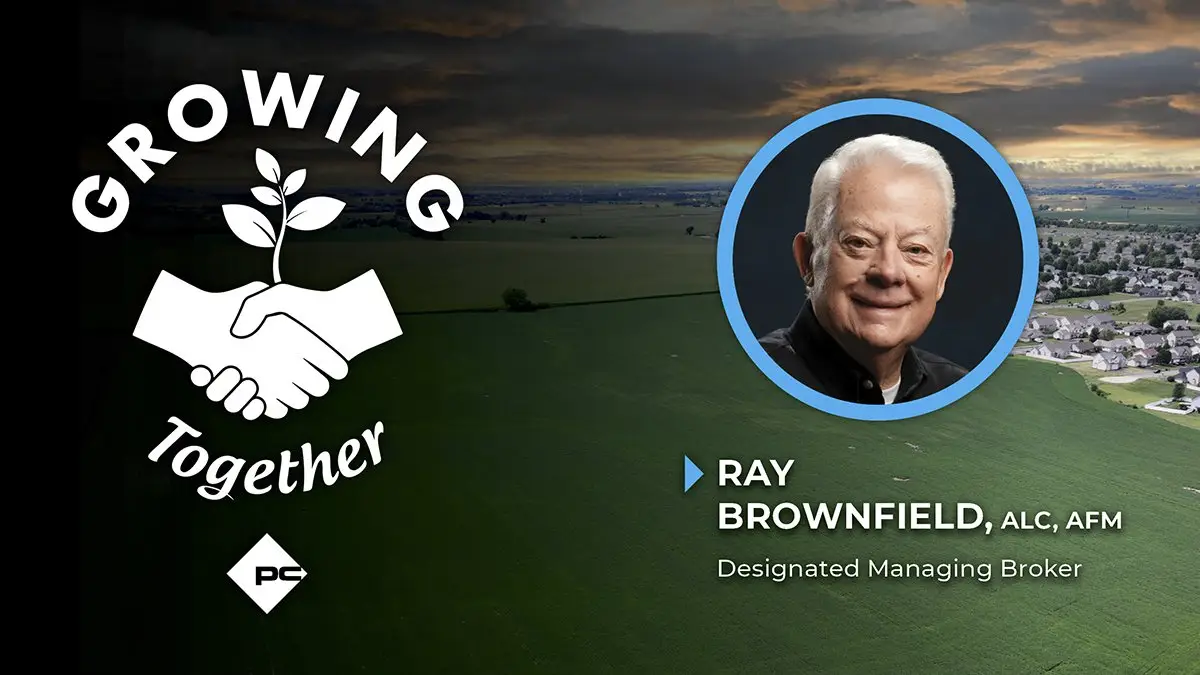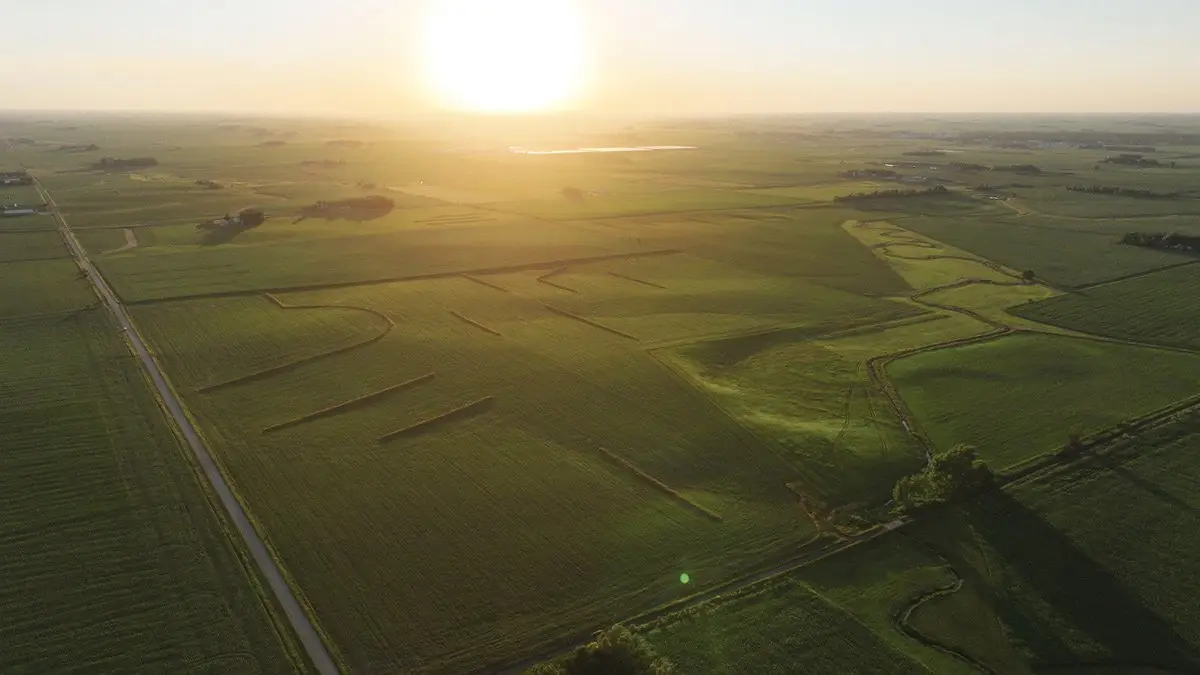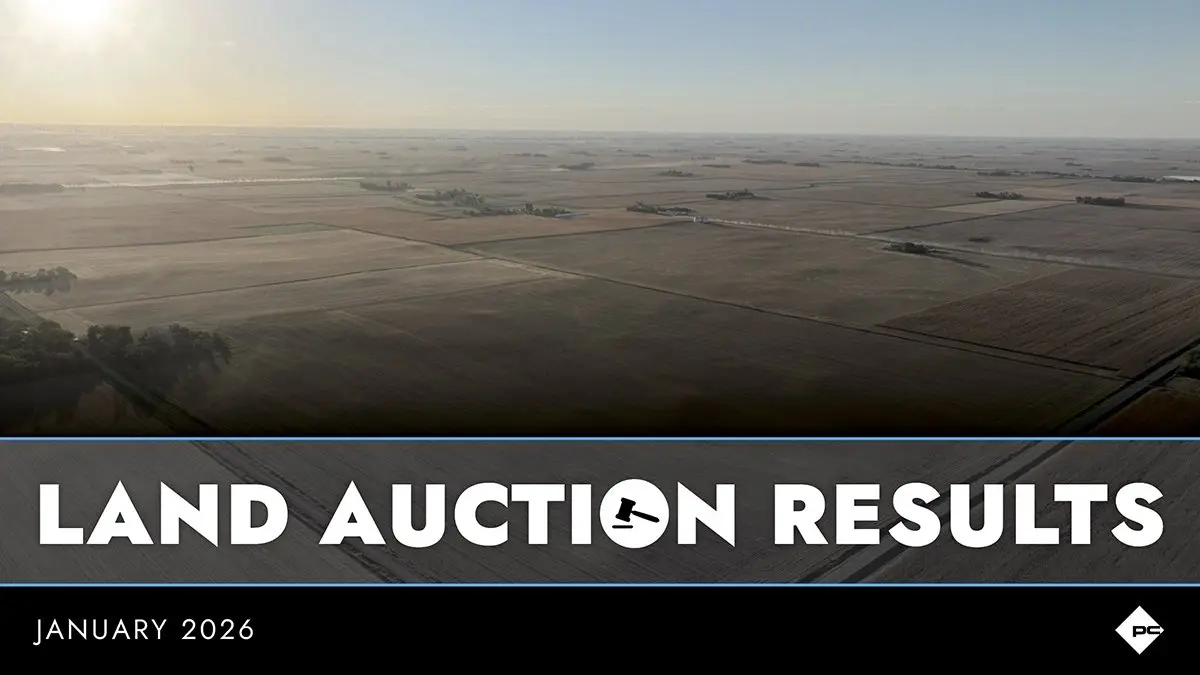The Land Investment Monthly is a round-up of articles and headlines published by the farm press, business media and financial publications with insights into buying, selling or investing in farmland, recreational ground or development ground. Follow Steve Bruere @SBruere on Twitter and find Peoples Company on Facebook for the latest land listings, auction results, upcoming events and real estate news. To subscribe to my monthly updates via email, send a message to Steve@PeoplesCompany.com with “Land Investment Monthly” in the subject line.
Best Choice
CNBC reported in March that farmland is the best choice for a long-term real estate investment. The $1.5 million Black Sea Agriculture fund, which could grow to $10 million within two years, purchases prime ag land and earns an income by leasing it back to local farmers. CNBC explores the population growth and increased food consumption that is driving demands for produce high-quality protein in developing nations. The publication looks at how owners of quality farmland are expected to benefit from these trends, alongside increasing interest demonstrated by institutional investors. “More people need to get into farming,” said commodity investor and international Quantum Fund co-founder Jim Rogers. Otherwise, we won’t have any food.”
Read more.
On the Pulse
Tracking the pulse of the land market requires a definition of what that means in terms of both the quality and location of a particular farm. Peoples Company Land Agent Matt Adams runs down a scenario involving two land auctions, and a case study that requires no crystal ball to see the disparity. His article sums up the non-quantifiable characteristics of farmland that can make a difference in terms of performance – a great, average, or poor sale of a parcel of land.
Read more.
Wealth Effect
The use of technology to track assets in real time while considering the social impact of diverse investment decisions was the topic of interest in a new Barron’s article about the preferences of the world’s richest people. “What’s the impact of my investment, not just the return?” That’s how Jeff Kauffman, head of Chicago-based Northern Trust Global Family Office, puts it. The worth of his average customer stands at nearly $800 million.
Read more.
Pay Dirt
Direct investing in U.S. farmland has averaged annual returns of close to 17 percent over the past decade. So what’s the story behind this consistently high rate of return for those putting their money in dirt? The United Nations has estimated that world food production will have to increase by 60 percent just to keep up with the demand. Arable land suitable for farming comprises only 10 percent of the world’s ag real estate. The Chinese population alone consumes around 200 million tons of food per year. Business Insider, repurposing LandFund Partner’s comprehensive article on the fundamentals of supply and demand, reported on the consistently high investment returns that will likely continue for purveyors of U.S. farm ground.
Read more.
Memory Lane
John Hutchcroft has ridden out the highs and the lows of the farmland and commodities markets back to 1980s. A new blog posts reflects on how the Peoples Company Land Agent’s family adjusted their business-thought process to survive the downturn, and live through the 80s stall. From right-financing business debt to the use of off-farm income to weather a storm, Hutchcroft summarizes both his personal experience and lessons learned.
Read more.
Bone Dry
Bone-dry conditions in California have led Crain Communications to publish a report encouraging farmland investors to establish a strategy for managing the risk and potential harm of historic droughts. Crain reports that investors both with an ownership stake and without an ownership stake in farmland are expected to keep a close eye on the nation’s drought-related headlines while considering how the supply of water could affect their portfolios.
Read more.
Viet Farms
Vietnam’s richest tycoons are expanding with an investment in the agriculture sector as private investors in the Southeast Asia nation channel hundreds of millions of dollars into cattle breeding, as well as growing corn and sugarcane. Despite barriers to entry that include finding large enough swaths of contiguous land on which to produce, farming is less capital intensive, poses fewer risks, and consistently brings profits compared to alternative real estate properties. Thanh Nien News reports on current market conditions in Vietnam, where the primary exports are coffee, pepper and woodwork items.
Read more.







